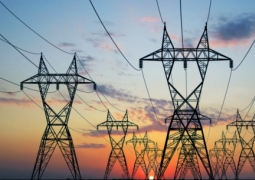
The Chairperson of the Standing Committee on Appropriations, Mr Sfiso Buthelezi, was the first to speak on behalf of his party, the African National Congress (ANC), in today’s virtual hybrid plenary of the National Assembly (NA) to support the Appropriation Bill, as tabled by the Minister of Finance on 26 February 2020. The passing of the Bill will allow for the withdrawal of money from the National Revenue Fund, so that the government can be in a position to continue provide services to the people.
“I am thrilled to report,” Mr Buthelezi began, “that the Standing Committee on Appropriations, supported by very dedicated and knowledgeable staff, was able to scrutinise the Bill and adopt, within the limited time we had. This was done in compliance with the Constitution, the Public Finance Management Act (PFMA) and the Money Bills and Related Matters Act No. 9 of 2009, (as amended).”
However, he went on to say that the debt to gross domestic product (GDP) ratio of 65,6%; fiscal deficit of 6,3%, with debt repayment of R229,3 billion; and an economy in recession presents a very precarious fiscal outlook. No doubt, the Covid-19 pandemic has made a bad situation worse. “We are very cognizant of that very challenging economic reality,” he added.
Nonetheless, the standing committee applauds the government for directing the biggest portion of the budget to learning and culture, education, health and social development. “The total of R1,15 trillion of consolidated government expenditure is directed to social expenditure. This is about 58%. This means that despite the budgetary challenges, the ANC-led government prioritises those who were hardest hit by the apartheid system, which was declared a crime against humanity by the United Nations.”
Mr Buthelezi highlighted the problem of Eskom’s Medupi and Kusile projects. When the projects were started in 2007, they were budgeted to be completed at a cost of R163.2 billion, and be completed in 2015. “Now the estimated budget of finishing these projects is more than double, with some putting the estimated figure at over R400 billion. As we know, they are still not finished, and it is estimated they will be finished in 2023. There is no doubt we are dealing with a moving target here.”
From 2008/9 to date, the government has invested R132.7 billion in Eskom. In the medium term economic framework, a further R112 billion will be invested, with R56 billion invested in the current financial year. This takes the total investment to R244.7 billion.
The initiative undertaken by the Congress of the South African Trade Unions of helping Eskom by converting Public Investment Corporation debt to equity will have many benefits, Mr Buthelezi pointed out. These include making workers shareholders of Eskom, decreasing debt and reducing debt repayments, and improving Eskom’s balance sheet. The initiative will also improve Eskom’s liquidity and will enhance its chances of being upgraded by rating agencies. It will also allow Eskom to go to capital markets to raise money and allow it to borrow money more cheaply. Eskom will also be able to provide electricity in a more sustainable and predictable way. Most importantly, jobs will not only be protected, but more may even be employed.
Mr Buthelezi called on everyone to support what he called an historic development. In particular, contractors and coal suppliers are crucial to the success of the initiative. “The negotiations about pricing of coal to Eskom must be concluded. It cannot be an open-ended process. Workers are in, people of South Africa are in, hence the call to finalise these discussions with coal suppliers,” added Mr Buthelezi.
Mava Lukani
12 June 2020

